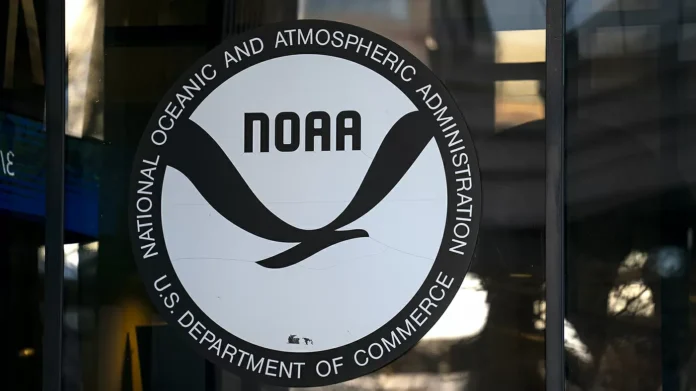The Trump administration’s latest budget proposal has raised concerns among scientists and environmentalists as it includes significant cuts to climate, weather, and ocean research at the National Oceanic and Atmospheric Administration (NOAA).
According to a draft document from the White House Office of Management and Budget (OMB), the administration plans to eliminate NOAA’s Oceanic and Atmospheric Research Office, which is responsible for conducting research on ocean and atmospheric conditions, as well as developing new technologies and methods to better understand and predict these systems.
This move has sparked outrage among the scientific community, with many experts warning that cutting funding for such vital research could have disastrous consequences for our planet and its inhabitants.
The OMB document also proposes significant cuts to NOAA’s satellite programs, which provide crucial data for weather forecasting and climate monitoring. This could result in a significant gap in our understanding of climate change and its impact on our planet, putting us at a serious disadvantage in terms of preparedness and planning for future events.
In addition to these cuts, the Trump administration is also seeking to reduce funding for NOAA’s National Weather Service, which provides critical forecasts and warnings for severe weather events such as hurricanes, tornadoes, and floods. This could have a devastating effect on the agency’s ability to protect lives and property from natural disasters.
The proposed budget blueprint has been met with strong opposition from environmental groups and concerned citizens, who argue that these cuts will have far-reaching and long-lasting consequences. The elimination of the Oceanic and Atmospheric Research Office, in particular, has been met with widespread criticism as it has been at the forefront of scientific efforts to understand and address the effects of climate change.
This office has played a crucial role in advancing our understanding of ocean currents, sea level rise, and the impact of human activities on marine ecosystems. Its work has also been instrumental in developing tools and technologies to mitigate the effects of climate change and adapt to its consequences.
The proposed cuts to NOAA’s budget come at a time when the effects of climate change are becoming increasingly evident around the world. From rising sea levels to more frequent and severe natural disasters, the need for robust and well-funded research in this area has never been more pressing.
Furthermore, these cuts also undermine the United States’ role as a global leader in climate and environmental research. For decades, NOAA has been a pioneer in advancing our understanding of our planet and its climate systems, and its work has been crucial in shaping international policies and agreements to address climate change.
The potential consequences of these budget cuts are alarming, not only for the scientific community but for every individual living on this planet. Our environment is changing at an unprecedented rate, and we need to invest in research and technologies that will help us mitigate and adapt to these changes.
Instead of cutting funding for vital research, the Trump administration should be prioritizing investments in climate, weather, and ocean research. This would not only benefit the environment but also the economy by creating new jobs and fostering innovation in the field of environmental science and technology.
Moreover, cutting funding for NOAA’s research programs is short-sighted and goes against the interests of the American people. We rely on accurate weather forecasts and timely warnings to protect our lives and property, and any cuts to these services could have dire consequences.
In conclusion, the proposed budget cuts to climate, weather, and ocean research at NOAA are a cause for concern and must be met with strong opposition. The consequences of these cuts would be far-reaching and have a profound impact on our planet and its inhabitants. It is our responsibility to advocate for the preservation of these vital research programs and ensure that our government prioritizes the well-being of our planet and its future.

